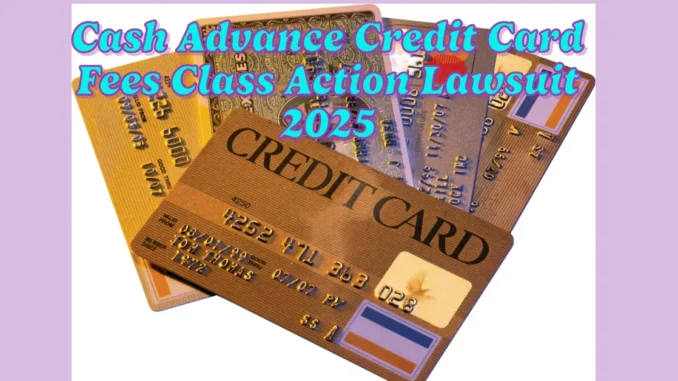
If you’ve been hit with surprise fees while transferring money using peer-to-peer payment apps like Venmo or Zelle, you might be eligible to join a class action lawsuit. This legal action focuses on hidden and unfair fees charged by credit card companies under their cash advance policies.
Table of Contents
Read on to understand how these fees work, why this lawsuit matters, and how you can determine if you qualify to take part.
What Are Cash Advance Fees?
A cash advance is a way to quickly access funds using your credit card, but it often comes with high fees and steep interest rates. These fees can either be:
- Flat-rate fees: A fixed amount, typically $5 to $10 per transaction.
- Percentage-based fees: A charge based on the withdrawal amount, ranging from 3% to 5%. For instance, withdrawing $500 at a 4% fee would cost you an extra $20.
Moreover, interest rates on cash advances are significantly higher, often exceeding 25% APR, and they begin accruing immediately without a grace period.
$100 Million Walgreens Prescription Savings Club Settlement: What You Need to Know
Why the Lawsuit?
Many credit card companies are broadening the definition of “cash advance,” classifying unexpected transactions as cash advances and imposing fees. For instance, transactions made through peer-to-peer payment apps like Venmo and Zelle are increasingly being labeled as cash advances, triggering fees that consumers might not anticipate.
These expanded definitions also include:
- Gambling activities or lottery ticket purchases.
- Cryptocurrency or foreign currency acquisitions.
- Tax payments.
- Bail or bond payments.
- Using credit cards for overdraft protection.
This practice has led to frustration and financial strain for many consumers, prompting legal action against banks and financial institutions.
Who Is Eligible to Join the Class Action Lawsuit?
The class action lawsuit is open to credit card users who experienced unexpected cash advance fees from specific financial institutions. Eligible institutions include, but are not limited to:
- TD Bank
- Zions Bank
- Arvest Bank
- Wheatland Bank
- UMB Financial Corporation
- Spokane Teachers Credit Union
- Boeing Employees Credit Union
- American Airlines Federal Credit Union
If you believe you’ve been unfairly charged cash advance fees for transactions through Venmo, Zelle, or similar apps, you could qualify.
How to Join the Class Action Lawsuit
If you suspect that your credit card issuer has applied unjustified cash advance fees to your transactions:
- Check Your Statements: Look for unexpected charges on Venmo, Zelle, or other peer-to-peer payment platforms.
- Fill Out the Form: Submit your information through the form provided on the lawsuit’s official page to determine eligibility.
- Consult Legal Resources: Contact legal professionals or the lawsuit administrators for further details.
Why This Lawsuit Matters
This class action aims to hold credit card companies accountable for allegedly unfair practices that impose undue financial burdens on consumers. By redefining what constitutes a cash advance, financial institutions may be exploiting customers who use modern payment methods for convenience.
Take Action Today
Unexpected cash advance fees can add up, leaving you with unnecessary expenses. If you’ve been impacted, joining this lawsuit could help you recover those costs and challenge unfair practices.
Don’t wait—fill out the form now to see if you qualify and make your voice heard in the fight for fair financial policies.
Leave a Reply